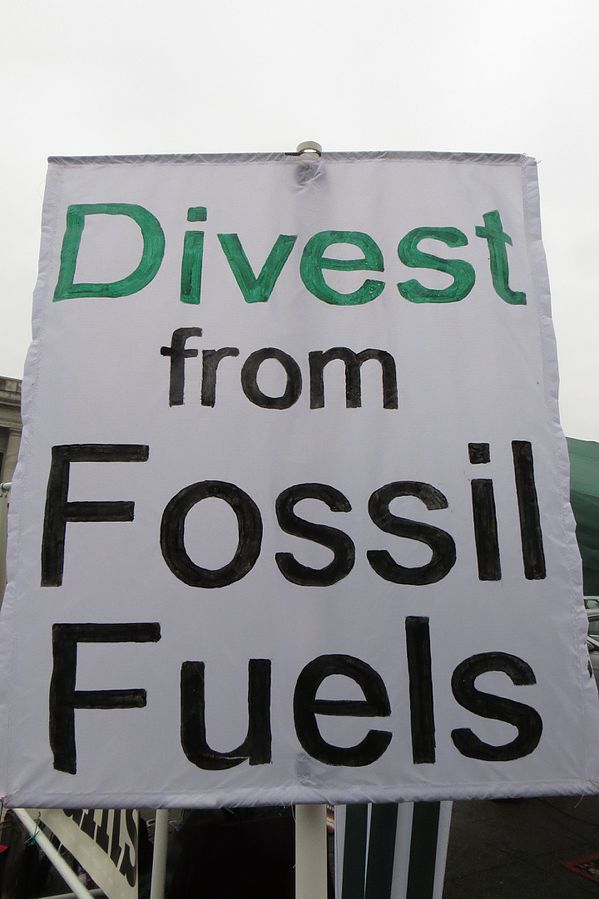Faith leaders called on institutions and individuals to pull out from fossil fuel investment in order to shift the world toward a low-carbon future.
The clamor was made during the 2nd Philippine Interfaith Summit on Climate Emergency (PISCE) on 24 November. These groups have signaled to cultural and political leaders that it is no longer morally acceptable to profit from the fossil fuel industry and to initiate a just transition to an economy powered by renewable energy (RE).
Faith groups have been at the forefront of the global movement for the past decade, comprising 32 percent of the institutions that have committed to divest more than US$14 trillion from fossil fuel industries.
“It is very important to recognize the extraordinary level of financial, political, and physical power the extractive industry still has on the global scale,” said Rev. Fletcher Harper, Executive Director of GreenFaith.
He also emphasized that the investments and other actions of faith groups must be aligned with their respective doctrines and values, which share the same messages of environmental protection and social justice.
“The work that we do is based on the deepest and most profound sources of divine authority that we have within our religious, spiritual, and moral traditions,” Harper said.
The need for fossil fuel divestment is rooted in the urgency of limiting global warming to 1.5 degrees Celsius above pre-industrial levels by 2030 and avoid more extreme climate change impacts. The PISCE was held shortly after the Philippines was hit by five tropical cyclones in a span of three weeks, including the strongest typhoon recorded in 2020.
“To arrest this global warming is nothing less than a moral imperative. Unless we act immediately, the worst is yet to come,” said Sec. Emmanuel M. De Guzman, Vice-Chairperson of the Climate Change Commission.
To avoid further losses and damages inflicted by climate-related hazards, De Guzman also called on business leaders “to sustain and strengthen cooperation in greening our economy and building the resilience of our communities to climate impacts”.
Action and best practices
The one-day online summit saw representatives from different religious denominations share good practices on caring for the environment and marginalized communities, including responsible social investments towards human development.
Samira Gutoc, chairperson of Ako Bakwit, Inc., stated how her group draws inspiration from the Quran in addressing environmental issues such as waste management and protecting the well-being of the internally displaced.
“We are stewards with a loaned resource, this earth that we breathe in. Remember that you are borrowing this earth,” she said.
Eva Marie Famador of the Philippine Council of Evangelical Churches shared a similar perspective on faithful stewardship as a means “to respond to poverty and inequality with generosity”. She also lamented on the need to “invest our energy in speaking truth to power”, as the Philippines continues to be heavily reliant on coal-fired power plants while the rest of the world is shifting to renewable energy.
“We need to advocate to the government to accelerate the shift to low carbon economy, for policies to shift the burden of taxation to activities we want to discourage, and incentives for industries that promote environment sustainability,” she added.
Bp. Gerardo Alminaza of the Diocese of San Carlos cited the efforts of the Roman Catholic Church in the Philippines in promoting divestment and sustainable investments, including the Catholic Bishops’ Conference of the Philippines Pastoral Letter on Ecology released last year.
He also called for faith-based institutions to take the necessary steps to strengthen the divestment movement in the Philippines. These actions include “finding suitable businesses and banks in which to reinvest their assets, improving the understanding of religious institutions about why financial investments play a huge role in addressing the ecological crisis, and building their capacities in managing more sustainable financial investments.”
To end the summit, faith leaders agreed to discuss efforts to build an interfaith movement to promote fossil fuel divestment in the Philippines and seek avenues for community-based and people-oriented sustainable investments.
The PISCE was held as part of the 2020 National Climate Change Consciousness Week, organized by Living Laudato Si’ Philippines in partnership with the Climate Change Commission, Uniharmony Partners Manila, and GreenFaith.
John Leo is the Program Manager of Living Laudato Si’ Philippines and a member of the interim Secretariat of Aksyon Klima Pilipinas. He has been a citizen journalist since 2016.
Latest posts by John Leo Algo (see all)
- Philippines and ADB partners for clean energy transition at COP26 - November 6, 2021
- Faith leaders call on institutions to divest from fossil fuel in the Philippines - November 25, 2020

